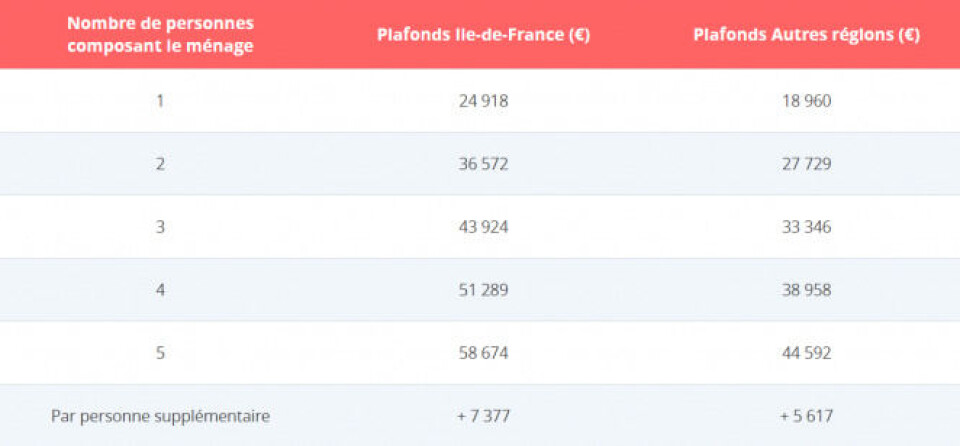-
How to help wounded wildlife and strays in France
Is illegal to treat wild animals at home unless you have authorisation
-
French energy vouchers: 2025 date confirmed – and it is much later than usual
Five million people are eligible for the physical voucher, which can be up to €277
-
How much are gas prices in France rising in April - and why?
It comes after six consecutive monthly rises. Try these tips to reduce your bills
CEE: France’s home renovation grant for main and second homes
The CEE certificates scheme enables certain eco-friendly home improvements to be subsidised with aid from energy companies - but the process is complicated. We explain

What is a Certificat d'économie d'énergie (CEE)?
It is a scheme that obliges energy suppliers (EDF, Engie, TotalEnergies, etc.) to obtain 'CEE' energy certificates (and thus avoid financial penalties) by funding renovation works aimed at improving the energy efficiency of households.
Households with low incomes can benefit from increased financial aid.
The table below shows the income thresholds, divided between the Ile-de-France region and the rest of the country. If your yearly household income is less than that shown, you will be eligible for more aid.

Pic: Prime-cee.fr
The funding can cover full renovation work or smaller individual jobs, such as improving insulation, upgrading boilers or heating systems.
For individual houses, the renovation must lead to a reduction in energy consumption in the house of at least 55%.
For apartment blocks or shared properties, this must be at least 35%.
The property must be more than two years old.
The certificate scheme has different names based on the project the household is undertaking, such as ‘Coup de pouce Chauffage et/ou isolation’ or ‘Coup de pouce Rénovation globale d’une maison individuelle’.
The subsidies can be combined with other renovation grants, such as MaPrimeRénov’. They can also be combined with local authority grants known as aides des collectivités locales or Action logement.
Read more: Explained: How to apply for a renovation grant for your French home
Who can benefit?
- Property owners – both main resident and second-home owners
- Landlords renting out their property
- Tenants renting a property
The process is complicated, speak to an expert
It should be noted that the process of getting renovation work subsidised through CEEs can be complicated.
If you carry out steps in the wrong order, your application will be rejected. Equally, there are many different rules as to the type of renovation project that can be carried out and who can undertake it. You also must keep detailed records of the work and provide other pieces of evidence such as your income.
It is therefore recommended to get an expert advisor in to help you.
France has rolled out a home renovation platform called France Rénov’, designed to be a one-stop-shop for all renovation-related projects and questions.
A central element of this is helping individuals planning home renovation with advice.
A team of free advisors is on hand to discuss projects, offer advice on what grants could be available to them and give estimates on how much renovations could cost.
This can be anything from getting double-glazing windows, upgrading a boiler or larger-scale building projects.
You can ask for an advisor to phone you, chat with one online, phone them directly or go to an Espaces Conseil France Rénov’ to speak to one in person.
There is, of course, no guarantee that the advisor will speak English. In this regard, the easiest option may be to go to speak to one in person at your nearest France Rénov’ centre as it may be easier to communicate in person when there is a language barrier.
Follow this link to see more about the options for getting advice from a France Rénov’ advisor.
What types of renovation work can be subsidised through CEEs?
Included in the list are walls, ceilings and windows insulation.
There is also heating support, including replacing or upgrading the home’s boiler or central heating system.
See which renovation jobs are eligible under the CEE scheme here (in French).
How do I benefit?
The process involves obtaining a quote from a professional with a status called Reconnu garant de l’environnement (RGE) for the renovation job you want undertaken.
France’s renovation platform, France Rénov’, has a search function to allow you to find professionals with RGE status.
When you hire an RGE professional to assess a renovation job at your home, be sure to explain that you are looking to carry out work that can be subsided via the CEE system.
You also need to contact energy companies in France to see if they will assist with this.
You do not need to use the energy company that you have a policy with. For example, you can benefit through Engie even if you use EDF. Consumer group UFC-Que Choisir suggests looking around for the best deal.
Be careful not to sign off on a quote before contacting an energy provider to see about getting aid under the CEE scheme, as this may invalidate your application.
Again, it is best to speak to an expert before going through the process.
When do you get the money back?
You will pay for the work yourself and then be reimbursed through the CEE scheme.
If an energy company agrees to finance a renovation job through the CEE scheme and you successfully submit your dossier with the correct evidence, you can expect to wait several months after the job is completed to be reimbursed.
In one of our weekly property roundups in March 2022, we covered the story of a French couple who have been waiting several months for €16,000 worth of renovation grants to be reimbursed to them, including €5,000 from CEEs.
Read more:Shortages, grant delays: Five updates for property owners in France
Related stories
Can new residents in France obtain a property renovation grant?
French builders look to be able to revise quotes with rising prices
Rising construction costs in France: Should you delay renovations?
























